This is a roundup of day one of the conference. So much to cover, so little time!
My day began with my presentation of "The Wonderful World of Genealogy Blogging" to a good group who asked excellent, interesting questions.
After assisting Daniel Horowitz at the MyHeritage.com booth, I attended the Jewish Records Indexing-Poland luncheon, featuring Yale Reisner, well-known to the Jewish genealogy community.
JRI-Poland luncheon: Yale Reisner
From 1994-2006, Yale was the founder and director of the Ronald S. Lauder Foundation Genealogy Project at the Jewish Historical Institute (Warsaw). Anna Przybyszewska Drozd took over at the JHI from 2007-2010. That arrangement ended about a month ago, and the Taube Foundation for Jewish Life & Culture (San Francisco) is now the main sponsor of the new Emanuel Ringelblum Jewish Historical Institute Jewish Genealogy & Family Heritage Center. Yale is the director of this new Center, and Ania is also there in this team effort.
Future plans include, as funding allows, staffing increases, and a new database. For the first time, all information, including names and cross-referencing, will be in a database with backup.
It will provide better access to material. The goal is to include genealogical information and archival materials, books, articles, photographs, Jewish historical sites and historical documentation.
They also plan to link to other databases - possibly JRI-Poland, JewishGen and the new Museum of the Polish Jews.
An interactive website will serve as a clearinghouse of sorts for various Jewish heritage projects and researchers around the country. Yale noted that most major universities have Jewish studies departments, while Jewish culture festivals draw large numbers of attendees .
The database will be linked to the website and allow some access (but not all) via the Internet.
He also noted that they are planning a portal so that people can communicate live with staff. Visitors to the JHI's former Genealogy Project were (and to the new center) private individuals or professional researchers.
The main issue is that of staff, who are overwhelmed with inquiries.When one searcher receives good information, they tell their friends who tell all their friends, and thus the number of inquiries rises exponentially, via personal visits, email or phone calls. If inquirers can receive information via technology, they don't have to come to Poland to ask the same questions.
He advised that there are only a few staff members, but "10,000 of you." They've been triaging requests for 16 years and do the best they can, and also take walk-ins. "Perhaps we can do more with contributions."
The center will have a Facebook presence. Yale also mentioned that they will have the ability to receive items from the public. It is not just what information an inquirer wants, but if they have pre-war images or other items to share. "The memory of Polish Jewry is no longer in Poland, but elsewhere," said Yale. Such items need to be placed in the proper setting and may be what others are looking for.
They are beginning to connect, provide links, perhaps planning for live reunions of family members and the possibility of conferences. The public will be able to upload items to the website. The database is ready now and will come online later this year.
Yale also addressed the significant number of Polish clients who are researching their heritage. There are survivor grandchildren who just discover their roots. He described a nun who learned her father was Jewish; she converted to Judaism. Some young people are looking for their Jewish grandparents so they can participate on the Birthright trips to Israel (twice a year from Poland) which brings a few hundred young people.
Is fee for service in the future? Possibly. They hadn't thought about it previously, although JRI-Poland suggests contributions be made to them. Requests vary: an elderly survivor looking for family is very different than a tourist coming in to ask where Lemberg is located. "Something may be coming, we don't know when or what."
For more information, contact Yale and Ania.
Jewish Geography
Judy Simon's "Jewish Geography and DNA: A Player's Guide" provided a good guide for attendees to earn about the "alphabet soup" of DNA.
According to Judy, chromosomes do not come with labels, town flags, or ethnicity. She reminded attendees at the beginning that although more than 300,000 records are in the FamilyTreeDNA.com database, if you don't find matches, just wait until later. As more people test, the probability of matches becomes much better.
Learn the DNA vocabulary at either FamilyTreeDNA.com or at ISOGG.org. Learn whom you should test for searching paternal or maternal lines or the new Family Finder, for which sex doesn't matter.
When you get your results, join surname, geographic or haplogroup projects. Upload your results to public databases such as YSearch.org or Mitosearch.org.
Judy advised testing the earliest generation you have available and to test at least one good person from each side of the family, while also maintaining good archival records. Use the Family Finder results, YDNA and mtDNA together with records.
Intricate Tapestry of Iranian Jews
UCLA professor Nahid Pirnazar of the Iranian Studies Department gave a very good overview of Iranian Jewish history, which I enjoyed very much. I've known Nahid for a long time and we have met in Los Angeles, in London and elsewhere. We hope she will participate in the 2011 conference.
Those are just some of today's offerings.
There were many more, however we still have not perfected the ability to be in three places at one time!
See evening activities and photos in the next post!
12 July 2010
Subscribe to:
Post Comments (Atom)

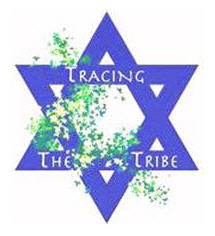



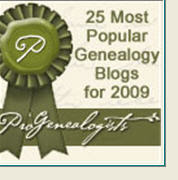
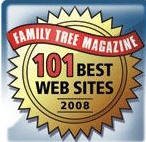









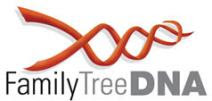












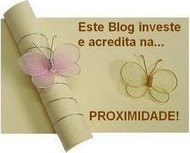







No comments:
Post a Comment